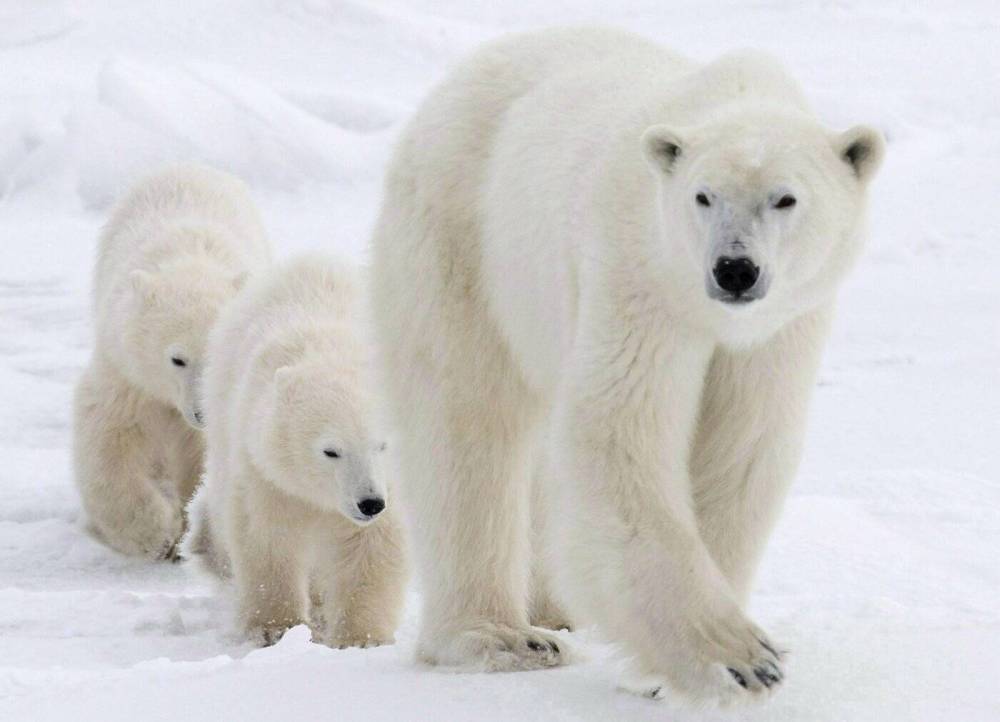Polar bears in Hudson Bay could be extinct as early as the 2030s if temperature agreements set out in the Paris Climate Accord are not met quickly.
A report, titled “Ice-free period too long for Southern and Western Hudson Bay polar bear populations if global warming exceeds 1.6 to 2.6C,” which was written by researchers from various universities and organizations around the globe, warns a localized extinction of polar bears in northern Manitoba could occur between the 2030s and 2060s.
“The disappearance of the southern Hudson Bay polar bears is imminent, with western Hudson Bay not far behind. Our research underscores the rapid changes human activity imparts to our climate,” University of Manitoba professor Julienne Stroeve, the lead author of the report, said in a news release Wednesday.

A polar bear mother and her two cubs walk along the shore of Hudson Bay near Churchill, Man., in 2007. (Jonathan Hayward / The Canadian Press files)
The report analyzed various climate-warming scenarios if greenhouse gas emissions continue and the globe surpasses the 2 C warming limit as set out in the Paris Agreement, an international treaty on climate change that was adopted in 2015.
The study looked at sea-ice thickness to determine polar bear survival. Ice too thin to support the animal’s weight for hunting, mating and denning threatens the population.
“Under 2 C of warming, southern Hudson Bay will be ice-free for 174 to 182 days, which would impair reproduction and strain survival,” the release says.
As rainfall replaces snowfall in the subarctic and arctic regions, polar bear dens risk being washed away with nowhere to give birth to offspring, the release says.
Hudson Bay is home to two of the world’s 19 polar bear subpopulations, representing the world’s southernmost polar bear populations.
The Manitoba population has long been considered an indicator of how the rest of the world’s polar bear subpopulations will fare in the future.
nicole.buffie@freepress.mb.ca

Nicole Buffie
Multimedia producer
Nicole Buffie is a multimedia producer who reports for the Free Press city desk. Born and bred in Winnipeg, Nicole graduated from Red River College’s Creative Communications program in 2020 and worked as a reporter throughout Manitoba before joining the Free Press newsroom in 2023. Read more about Nicole.
Every piece of reporting Nicole produces is reviewed by an editing team before it is posted online or published in print — part of the Free Press‘s tradition, since 1872, of producing reliable independent journalism. Read more about Free Press’s history and mandate, and learn how our newsroom operates.
Our newsroom depends on a growing audience of readers to power our journalism. If you are not a paid reader, please consider becoming a subscriber.
Our newsroom depends on its audience of readers to power our journalism. Thank you for your support.